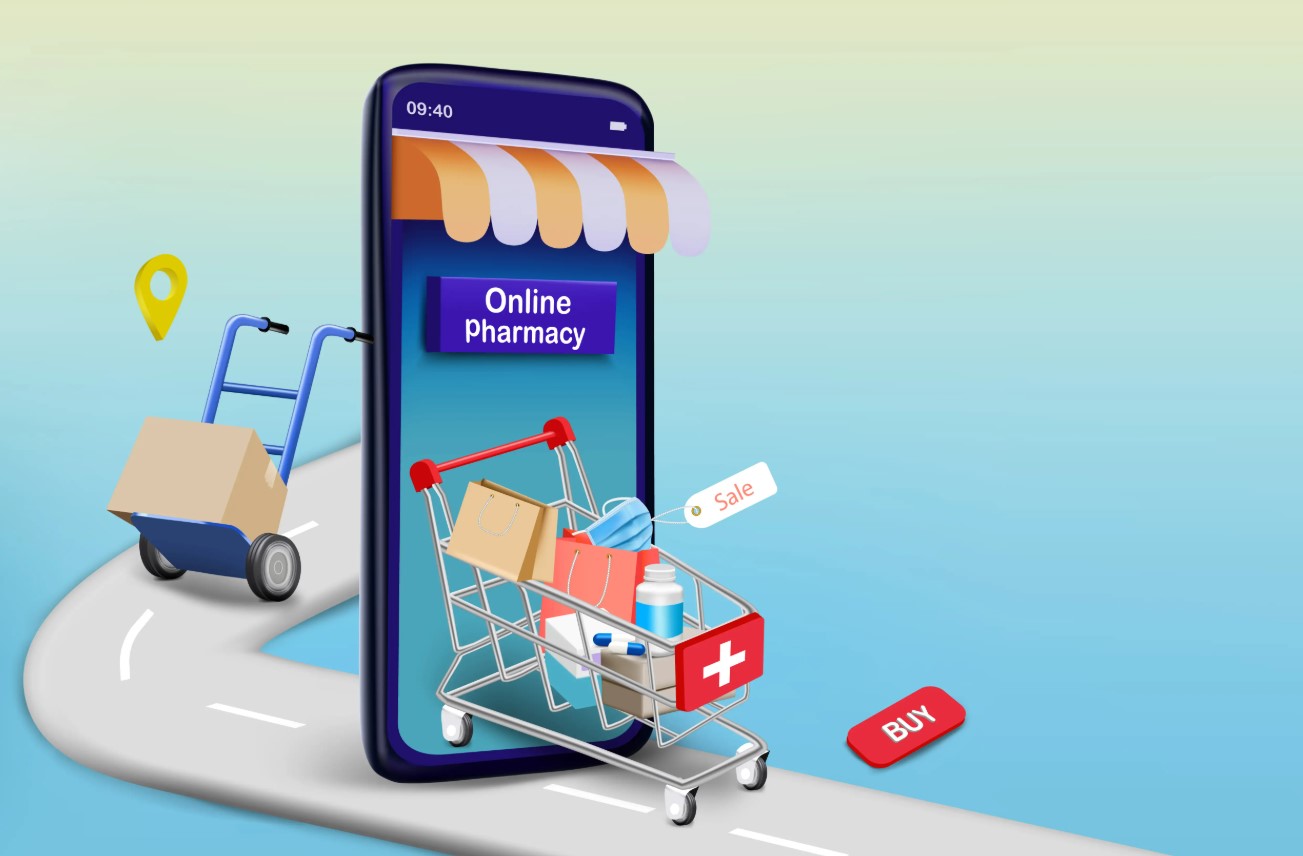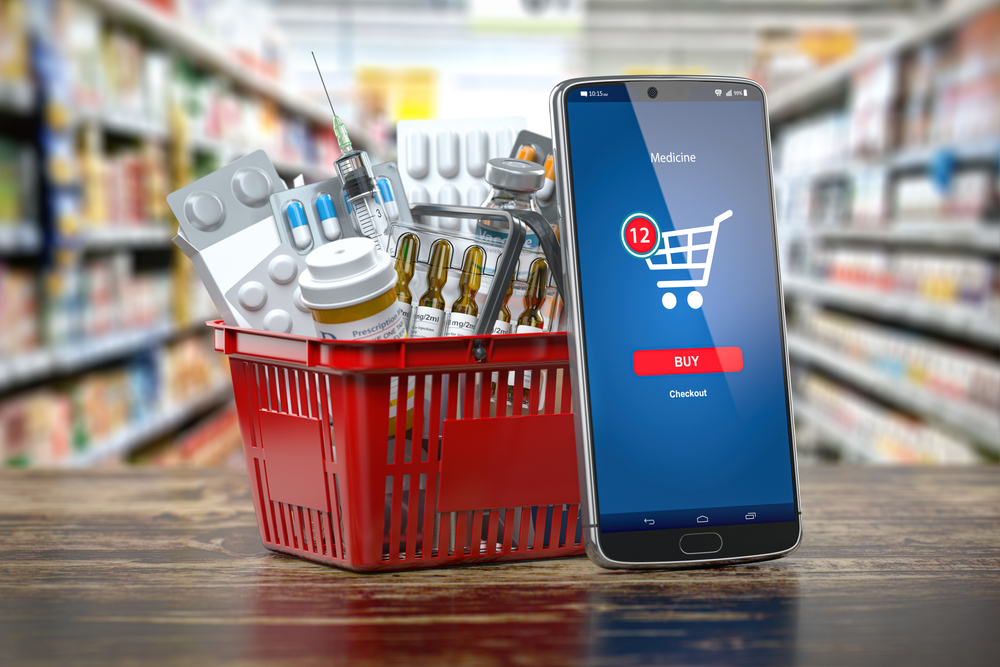E-pharmacies have proven to be a convenient means for people with chronic diseases such as HIV and diabetes to access regular and timely drug refills, among other crucial health services.
By Michael Akuchie
As of 2024, Sub-Saharan Africa recorded 650,000 new HIV infections, bringing the total number of people living with HIV in the region to 26.3 million, according to findings from UNAIDS. The UNAIDS report also ranks Sub-Saharan Africa as the region with the highest population of HIV patients, followed by Asia and the Pacific, which has 6.9 million people living with the virus.
Although HIV is not as deadly as AIDS, a patient’s condition can quickly deteriorate if little to no medication is taken to manage the infection. Due to a severely weakened immune system, HIV patients may suffer from various conditions, ranging from tuberculosis to kidney failure, if proper medication is not administered.
While local and global health organisations have often collaborated to make medication available to HIV patients, many still struggle to access the antiretroviral drugs needed to reduce the risk of opportunistic illnesses like tuberculosis. Access to these drugs also helps prevent HIV-positive mothers from transmitting the virus to their children.
Beyond the health-related risks, HIV patients must navigate stigma from close relatives and others. Due to widespread ignorance about HIV, particularly how it is transmitted, patients are often shunned. Continuous discrimination against people living with HIV carries severe consequences, according to an article by Johns Hopkins Medicine. The piece warns that patients may experience profound isolation, anxiety, and even depression, with some feeling compelled towards suicidal tendencies.

Fearing stigmatisation arising from cultural taboos or sheer ignorance, many HIV patients avoid seeking treatment and risk becoming sicker. But what if there were a way for patients to access antiretroviral therapy efficiently without facing stigma?
E-pharmacies have emerged as a convenient solution for people with chronic illnesses such as HIV and diabetes to access regular and timely drug refills, alongside other essential health services. Many e-pharmacies also operate 24/7, offering patients round-the-clock support. This makes them a practical option for HIV patients, as they eliminate the need for direct interaction with pharmacists or healthcare workers, thereby reducing the chances of encountering stigma when purchasing antiretroviral drugs.
Although Africa’s startup scene is relatively young, numerous healthtech startups have emerged, offering a suite of services designed to enhance patient care. E-pharmacies such as mPharma, MyDawa, and HealthPlus now provide online pharmacy services to patients. From virtual pharmacy support to home delivery, HIV patients can now purchase their much-needed medication without the worry of running into a familiar face at the local pharmacy or hospital.
Additionally, subscribing to an e-pharmacy grants access to a wider range of drugs that may not be readily available at nearby pharmacies. This means that patients with mobility challenges no longer need to travel long distances to obtain specific medications.
Beyond the advantage of discreet packaging and delivery, HIV patients can also arrange for their medication to be automatically refilled on a monthly or quarterly basis. Whether via a smartphone app or a website, notifying a pharmacy of the need for a refill — either immediately or scheduled for a later date — has never been easier. What’s more, patients can receive notifications of upcoming deliveries through SMS, push notifications, or email, eliminating the need for in-person pharmacy visits.
Medication forgetfulness is a real challenge for people who need to take drugs regularly, particularly for chronic conditions. While some patients understand the importance of adhering to treatment, the American Medical Association notes that mistrust, depression, or the burden of already taking multiple medications may discourage others from adding new prescriptions to their regimen. Non-adherence to medication can have life-threatening consequences, especially in the case of HIV, cancer, and other serious diseases.
Fortunately, a simple push notification or text-based reminder can prompt patients to take their medication at the appropriate time, allowing the drugs to work effectively. This approach is supported by the findings of a facility-based study conducted in 2023 by the Bio-Medical Group. Of 423 hypertensive patients surveyed in Gondar, Ethiopia, 64.5% indicated that they would be inclined to receive mobile text message reminders to take their medication. Most e-pharmacies now offer push notifications and text-based reminders to help ensure patients adhere to their medication schedules.

Beyond medication adherence, HIV patients can also benefit from e-pharmacies’ virtual consultations. In remote areas where access to qualified specialists often requires lengthy trips to urban centres, e-pharmacies present a welcome alternative. Remote consultations provide a much-needed safe space for patients to ask sensitive questions about medications or new symptoms without fear of being judged by others.
However, several factors challenge the growth of e-pharmacies across Africa as a more convenient option for HIV patients. For instance, the licensing process for new online pharmacies is often tedious, as each country enforces its own regulatory guidelines. This typically hampers the expansion efforts of many e-pharmacies, leaving a large HIV patient population with only a limited number of options.
To democratise access to medication via e-pharmacies, healthcare policymakers across Africa should establish a unified licensing framework for healthtech startups. This would eliminate ambiguity in the process, making it easier for more e-pharmacies to become registered and operational.
Many patients still struggle to trust e-pharmacies, mainly due to a lack of understanding. This mistrust is further fuelled by the rising incidence of cybercrime. In a world where sharing your bank details with a suspicious platform could lead to losing your life savings, many people remain wary of disclosing sensitive medical information online. Notably, the healthcare industry—a rich source of data—has often been targeted by hackers, who then auction stolen data on the dark web for identity thieves to purchase and exploit in further crimes.
Whether a patient obtains antiretroviral drugs from a physical pharmacy or an online one, the reality is that the medication tends to be expensive. For middle- and low-income households, this presents a significant challenge, particularly as consistent access to these drugs is essential. Fortunately, subscribing to a Health Maintenance Organisation (HMO) plan can help secure medication at subsidised rates. It is advisable to compare the offerings of multiple HMOs before making a final decision.
E-pharmacies should strongly consider investing significantly in improving their data security infrastructure to deter hackers. Employers should also be educated on the risks of clicking suspicious links in emails from unverified sources. By reducing the incidence of data breaches, more people may gain confidence in e-pharmacies and request to be onboarded.

Although e-pharmacies provide last-mile delivery services to HIV patients in remote areas, the persistent issue of poor road networks can discourage courier companies from delivering life-saving medication due to the condition of roads in certain regions. While innovations such as drones have been deployed in such situations, a long-term solution would be for African governments to allocate more funds towards rehabilitating dilapidated roads. Additionally, budgets should include provisions for routine maintenance to prevent roads from developing major potholes within a few years.
Sub-Saharan Africa continues to top the list of regions with the highest number of people living with HIV. While antiretroviral therapy is not a cure, it enables patients to live longer and healthier lives. Accessing the necessary medication has not always been easy, but with e-pharmacies, the process can become far less strenuous. Once Africa can effectively address its infrastructural challenges, HIV patients and others living with chronic conditions will be able to access adequate medical care without needing to leave their homes.
Michael Akuchie is a tech journalist with five years of experience covering cybersecurity, AI, automotive trends, and startups. He reads human-angle stories in his spare time. He’s on X (fka Twitter) as @Michael_Akuchie & michael_akuchie on Instagram.




